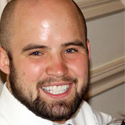Five Students Awarded the 2015 University Prize Instructorship
April 9, 2015
By Simon Goodacre | GSAS
Five doctoral students have been awarded the 2015 University Prize Instructorship (UPI). The award carries a $6,000 stipend and offers the opportunity to design and teach a course for undergraduate students. Eric Chasalow, the Dean of the Graduate School of Arts and Sciences, worked with relevant department chairs and a faculty committee to make the final selections. Applicants were selected based on the strength of their proposed syllabus and their evaluations as teaching fellows.
"We are delighted to be able to offer the University Prize Instructorship to these students," said Chasalow. "The award bolsters our commitment to pedagogy, and these courses will be a great complement our existing undergraduate offering." The winners will begin teaching their courses next fall or spring.
Here are this year's recipients of the UPI:
 Aviv Ben-Or
Aviv Ben-Or
Modern Arab-Jewish Literature
"My course focuses on Jews from Arab countries who left behind a world of language and culture when they switched from their native Arabic to write in Hebrew. This transition is never complete, and the results are texts that challenge assumptions about belonging, identity, ideology, and the possibility to bridge seemingly irreconcilable gaps between people and places."
 Philip Wight
Philip Wight
The United States of Energy: Freedom, Power and Progress in America
"My course investigates American history through the lens of energy. For many people, energy is an abstract idea that seems to have little to do with their everyday lives. But energy has always been fundamental to human prosperity—and this is more true today than ever before."
 Margaret Clendenen
Margaret Clendenen
Religion, Gender and Sexuality in America: A Sociological Approach
"My course is designed to provide an introduction to the sociological study of religion as related to gender and sexuality. We will cover topics related to women in religious organizations, LGBT identities and religion, and how religious institutions shape understandings of gender and family."
 Adam Smith
Adam Smith
The Politics of Medicine: Distribution, Recognition, Democracy
Cara Pina
Advancements in S.T.E.M. Through Molecular Biology
"My course uses the creation of molecular biology as a setting to focus on how scientists can benefit from multidisciplinary training and research. Through focusing on both past and present technological and scientific advancements, I wish to strengthen interdisciplinary skills in S.T.E.M. that may not be the focus of other courses."






